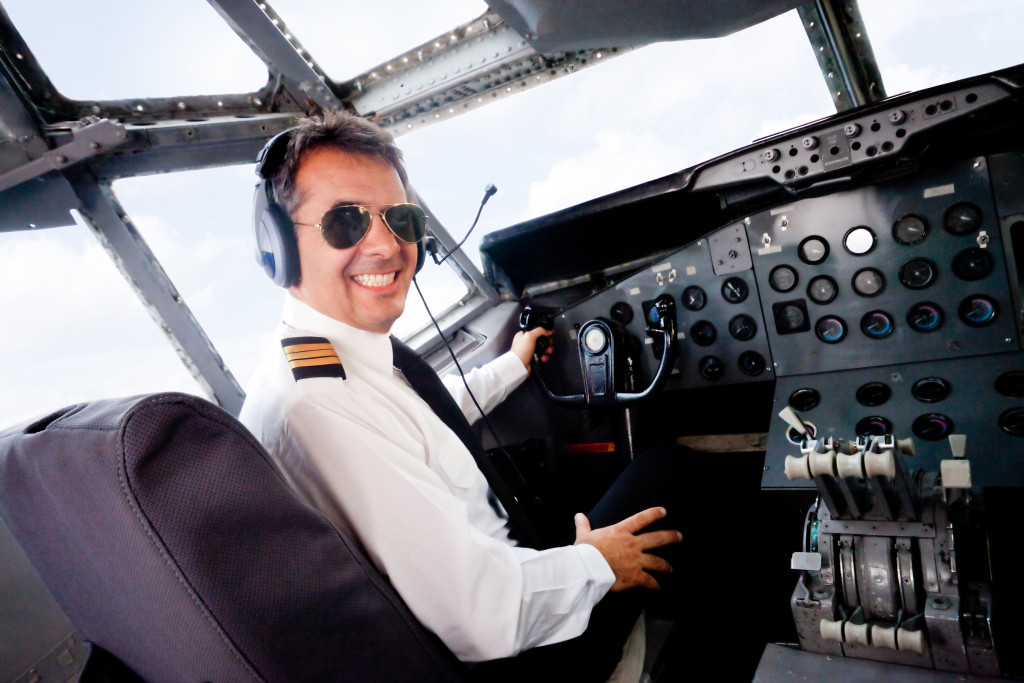- Obtain the necessary licenses and certifications to build a strong educational foundation.
- Construct an effective business plan to outline your goals, target market, and competition analysis.
- Follow regulatory guidelines closely and secure required permits, licenses, and insurance coverage.
- Leverage digital marketing strategies to reach potential customers and expand your reach.
- Invest in custom pilot wings to represent achievement, expertise, and unity.
Embarking on the journey of starting a pilot business is an exhilarating endeavor that requires a blend of passion, dedication, and strategic planning. Whether you dream of running a flight school, offering aerial photography services, or providing charter flights, the aviation industry offers boundless opportunities. However, the path to success is paved with challenges. This guide will help you discover five essential tips to help you navigate the complexities of starting and growing your pilot business.
1. Educational Foundation
Building a strong educational foundation is crucial before you can soar in the pilot entrepreneurship world. Acquiring the necessary licenses and certifications is paramount. Enroll in a reputable flight school to obtain your private pilot’s license (PPL), followed by advanced licenses such as commercial pilot’s license (CPL) and instrument rating (IR). Continuously enhance your knowledge of aviation regulations, safety protocols, and industry trends to establish yourself as a reliable and knowledgeable pilot. Remember, expertise instills confidence in your clients and fosters a safety-first culture within your business.
2. Crafting a Comprehensive Business Plan

Just as a skilled pilot meticulously plans routes before takeoff, a well-structured business plan is your path to success. This document outlines your business goals, target market, competition analysis, marketing strategies, financial projections, and operational framework. Define your unique selling proposition (USP) that sets your pilot business apart. Are you focusing on luxury air travel, cargo transportation, or flight training? Tailor your business plan accordingly and remain open to adapt as the industry evolves. A solid business plan guides your actions and attracts potential investors and partners who share your vision.
3. Navigating Legalities and Regulations
The aviation industry is highly regulated to ensure safety and security. Navigating the legalities and regulations is essential to ensure a smooth takeoff and safe landing for your pilot business. Obtain the necessary permits, licenses, and insurance coverage to protect your business and clients. Regulatory bodies like the federal aviation administration (FAA) attract customers and have strict guidelines for pilot operations, aircraft maintenance, and training programs. Compliance with these regulations prevents legal issues and reinforces your commitment to professionalism and safety.
4. Effective Marketing and Branding
In a competitive industry, effective marketing and branding are the engines that propel your pilot business to new heights. Consistent and creative marketing efforts will attract customers and foster brand loyalty and recognition.
Here are some tips for effective marketing and branding:
Understand Your Target Audience
Knowing your audience is fundamental to any marketing strategy. Research the demographics, preferences, and purchasing behaviors of your potential customers. It will allow you to tailor your messaging to resonate with them effectively.
Optimize for SEO

Search engine optimization is a must in today’s digital world. Optimize your website and blog content with relevant keywords to improve your visibility on search engine results pages, making it easier for potential clients to find you.
Stir Emotion with Storytelling
Share the exhilarating experience of flying through compelling storytelling. Use images, videos, and narratives to evoke emotions and demonstrate the unique value of your services.
Monitor and Adjust Your Strategy
The digital marketing landscape is ever-changing. Regularly monitor your marketing campaigns and adjust strategies based on performance metrics. It’s essential for continuous improvement and staying ahead of the competition.
5. Investing in Custom Pilot Wings
Investing in high-quality custom pilot wings is a symbolic gesture with profound significance for your business. Pilot wings are more than just accessories; they represent achievement, expertise, and unity among your team. Designing custom wings that bear your company logo and values instills a sense of pride among your pilots and serves as a visual identifier of your brand. Whether worn on uniforms or displayed in your office, these wings create a tangible link between your business and the aviation heritage. Custom pilot wings can also be presented as awards for milestones achieved or exceptional performance, further motivating your team members to excel.
Final Words
The dream of establishing a pilot business is within your grasp, but it requires meticulous planning, unwavering commitment, and a passion for aviation. You are setting yourself on a course toward success by building a solid educational foundation, crafting a comprehensive business plan, navigating legalities and regulations, implementing effective marketing strategies, and investing in custom pilot wings. Remember, the aviation industry thrives on innovation and dedication, so stay open to learning, adapt to changes, and continue reaching for the skies. Your dream of running a thriving pilot business is achievable and can become a reality that leaves a lasting impact on the world of aviation.
